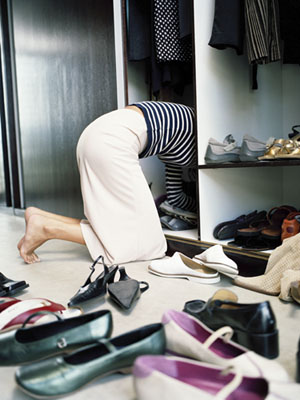
It’s time to clean out my cancer closet. Between living with cancer for nine years and researching and writing a book on young adult cancer for five years, I’ve accumulated an abundance of oncology articles, books, and magazines.
The task is more emotional than I anticipated. Lodged in my collection of scientific data are notes I scribbled in the margins, like: “None of these stats apply to me. Is it time to abandon Western medicine?” I’m still am not cured. Thankfully I have learned how to manage my cancer better now than when I wrote that note. None the less, it’s sad reading my paper trail of desperation.
It’s hard getting rid of my books on palliative and end of life care. They were invaluable in helping me write resource sections for Everything Changes. A loud voice says, “Hang on to these Kairol, you might need them someday for your own care.” Cleaning my cancer closet is highlighting that over the past two years, I’ve come to expect that I am going to get a secondary form of cancer. I hope I am wrong. I don’t get worked up about it. But it’s a thought I can’t shake.
Some survivors make scrapbooks about their treatment. When I last moved apartments, I culled my collection of get well cards from a mountainous box to one manila envelop. I might even want to ditch that now too. Over time, I cling less to my cancer memorabilia. Yet, I still commemorate my cancer care almost daily through my writing.
I like my perspectives on cancer care. I want to continue blogging, writing columns, speaking, and working on special projects with organizations. But lately I’m making a shift from having two feet in the cancer world to one foot in and one foot out. For example, at the end of this month, I’m stepping down as co-host on The Stupid Cancer Show.
My identity as a cancer patient is shifting. It isn’t easy. But it is good. Growing pains are better than cancer pain.
How much do you want to remember you cancer care and how much do you want to move on? Do you save research information or get well cards? Do you ever anticipate getting a secondary form of cancer?
![]()
![]()

 “Everything Changes is, without doubt, the most forthright, emotionally sophisticated, and plain-old valuable book of its kind I've seen.”
“Everything Changes is, without doubt, the most forthright, emotionally sophisticated, and plain-old valuable book of its kind I've seen.”












